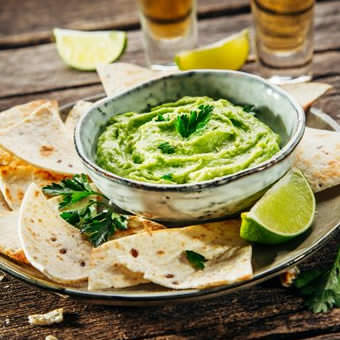Introduction
Food security is a crucial aspect of contract food manufacturing in Australia. With the expanding demand for convenience and ready-to-eat products, agreement food makers play an essential role in producing secure and also top notch foodstuff. In this post, we will discover the policies and guidelines that regulate contract food manufacturing in Australia, making certain that customers can trust the products they purchase.

Understanding Contract Food Manufacturing
Contract food production involves contracting out the production of food products to a specialized maker. This allows business to focus on other elements of their business while ensuring that their products are created according to sector requirements. These makers have actually specialized facilities, tools, and also proficiency to meet the specific needs of different food products.
What is Contract Food Manufacturing?
Contract food manufacturing describes the process of hiring a third-party producer to generate foodstuff in behalf of a firm. The agreement maker takes care of various stages of manufacturing, consisting of sourcing active ingredients, handling, product packaging, labeling, and also also circulation. This setup permits business to scale up their production without purchasing extra facilities or manpower.

Benefits of Contract Food Manufacturing
Cost Effectiveness: By outsourcing manufacturing to an agreement supplier, companies can save on expenses related to framework, tools, labor, and regulative compliance. Expertise and Field of expertise: Contract manufacturers have substantial knowledge and experience in producing specific kinds of foodstuff, guaranteeing premium quality and also consistency. Scalability: As need for a product boosts, contract manufacturers can rapidly scale up production without disruptions. Focus on Core Competencies: Firms can concentrate on marketing, sales, as well as product growth while leaving the manufacturing process to experts. Access to New Markets: Contract suppliers usually have developed distribution networks that can help companies broaden their reach into brand-new markets.Australian Laws for Contract Food Manufacturing
Australia has rigid guidelines as well as standards in position to ensure the safety and security and quality of food products. Agreement food suppliers have to follow these regulations to run legitimately as well as meet customer expectations.
Food Safety Requirements Australia
Food Safety Standards Australia (FSSA) sets out the regulative needs for the production, processing, and handling of food in Australia. These criteria cover various facets, including health techniques, handling of irritants, labeling requirements, and traceability of components. Contract food manufacturers need to abide by these criteria to make certain the safety and also honesty of their products.
Good Manufacturing Practices (GMP)
Good Manufacturing Practices (GMP) are a set of guidelines that detail the minimal requirements for the manufacturing procedure. These techniques cover areas such as center layout, tools maintenance, personnel hygiene, item testing, and quality control. Adhering to GMP ensures that food are produced in a clean and also controlled environment, lessening the danger of contamination.
Food Labeling Requirements in Australia
Accurate as well as clear labeling is important to inform customers about the content as well as possible allergens existing in a food. The Australian Food Specification Code describes particular requirements for labeling, consisting of necessary details such as components checklist, irritant declarations, dietary information panel, and also country of origin labeling. Agreement food producers must ensure that their products Food safety audits are identified properly to abide by these regulations.
HACCP (Danger Analysis Crucial Control Factor)
Hazard Analysis Important Control Factor (HACCP) is a methodical technique to identifying and also controlling potential risks in the food manufacturing process. This preventative system includes identifying possible dangers, developing vital control points, checking treatments, corrective activities, confirmation tasks, and record-keeping. HACCP plays a vital duty in guaranteeing the safety of foodstuff by identifying and mitigating dangers at each phase of production.
Quality Guarantee Programs
Quality assurance programs play a crucial function in preserving consistent high quality throughout different sets of food. These programs include regular screening and also analysis of basic materials, ended up products, as well as ecological conditions to guarantee conformity with high quality criteria. Contract food producers typically have durable quality assurance programs in place to satisfy the assumptions of their customers and also regulative bodies.

Food Security Audits
Regular food safety audits are performed by governing bodies to evaluate the compliance of contract food manufacturers with relevant guidelines as well as guidelines. These audits evaluate various aspects, consisting of facility sanitation, employees hygiene practices, record-keeping, equipment upkeep, and adherence to HACCP principles. Contract food makers should undertake these audits to show their dedication to producing safe and also top notch food products.
Compliance with International Standards
In enhancement to Australian laws, agreement food producers might also require to comply with worldwide requirements relying on their target audience. International criteria such as ISO 22000 (Food Safety And Security Administration System) and also BRC Global Requirement for Food Safety provide additional structures for making certain food security and top quality. Adhering to these standards can enhance the reputation of agreement food suppliers and also open possibilities for exporting their products.
FAQs about Contract Food Manufacturing in Australia
What is agreement food manufacturing?- Contract food production refers to outsourcing the production of food to a specialized manufacturer.
- Companies pick contract food manufacturing for cost performance, knowledge, scalability, concentrate on core expertises, and access to new markets.
- The laws consist of Food Security Requirement Australia (FSSA), Excellent Manufacturing Practices (GMP), Food Labeling Needs, HACCP, Quality Control Programs, and Food Safety And Security Audits.
- Contract food manufacturers ensure security via conformity with laws, applying GMP methods, adhering to HACCP principles, keeping quality control programs, and going through routine audits.
- Yes, depending upon the target audience, contract food makers may need to adhere to global standards such as ISO 22000 and BRC Global Standard for Food Safety.
- Companies can assess the top quality of agreement food makers with audits, accreditations, performance history, compliance with laws, and credibility in the industry.
Conclusion
Ensuring food safety is of extremely important value in contract food manufacturing in Australia. By adhering to guidelines, carrying out ideal methods, and also preserving rigorous quality control procedures, agreement food makers can create safe and also top quality food products. This not only develops consumer trust however likewise aids business satisfy their service objectives. As the demand for contract food manufacturing remains to rise, it is critical for both producers as well as firms to stay updated with the latest laws and also market fads to supply products that fulfill the highest possible standards of safety and also quality.